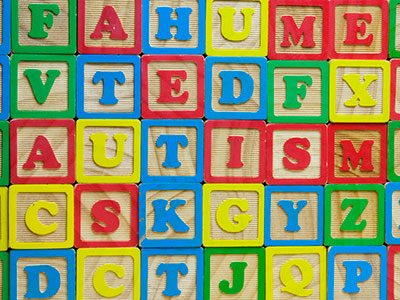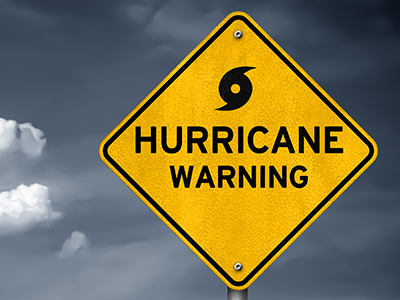Approximately 3.5% of adults in the U.S. identity within the LGBTQ+ umbrella (as lesbian, gay, bisexual, transgender, etc.). Studies from the last decade suggest that these rates may be higher for autistic individuals. For example, a recent international study of more than 600,000 adults identified that autism spectrum disorder (ASD) was 3 to 6.4 times more common among transgender people compared to cisgender (i.e., non-transgender) people, and studies of autistic adults report that more than 10% may identify as a gender different from their sex assigned at birth. Similarly, evidence indicates sexual orientation diversity (e.g., lesbian, gay, bisexual sexual orientations) may be more common among autistic individuals. We do not understand why LGBTQ+ identities may be more common among autistic people.
Some autistic LGBTQ+ people have explained that it is not so helpful to focus on why LGBTQ+ identities are common in ASD, but instead how best to affirm and support gay, lesbian, bisexual and transgender autistic people.
Give your child room to explore
Sometimes a parent may wonder whether their autistic LGBTQ-exploring child is in fact LGBTQ+. We’ve heard some parents express ideas such as, “I think my child is just confused because they’re autistic.” The process of a young person coming to know their sexual orientation and gender takes time and can unfold over years. It is not uncommon for young people to explore a range of identities before learning what is most true for them. The same is true for autistic LGBT-exploring youth. It is important to give your child the room to figure out what fits best for them. Shutting down that exploration process with statements that suggest that the young person is confused because of their ASD can be experienced as profound rejection.
LGBT and LGBT-exploring youth need acceptance and affirmation from their parents/caregivers, families and the larger community. In fact, support, acceptance and affirmation are among the most powerful predictors of mental health outcomes in LGBTQ+ and LBGTQ-exploring youth. Unfortunately, many LGBTQ+ youth — including many autistic LGBTQ+ youth — do not experience the support and acceptance they need, and this puts them at risk for mental health problems (depression, anxiety and suicidality). Our recent research found that experiences of LGBTQ-related stigma and rejection were just as predictive of depression and anxiety in autistic transgender youth as in non-autistic transgender youth.
How to support your LGBTQ+ child
When our child is young we do not know what gender identity or sexual orientation they will ultimately have so it is important for parents to communicate that their child will be loved and accepted no matter what their gender identity or sexual orientation will be. The following are a few ways of communicating LGBTQ+ acceptance and support within families for younger children:
- Provide stories, books, movies and TV shows that include affirming story lines about LGBTQ+ people.
- Make sure the family communicates clearly about how LGBTQ+ people are a valued and celebrated part of our society.
- Make sure kids know LGBTQ+ people (such as in the media, family friends, at places of worship, etc.).
- Avoid assumptions (and statements) that imply that your child will be heterosexual/cisgender. For example, instead of saying, “when you have a girlfriend someday” try instead, “when you find a person you want to date someday.”
And if your child has indicated that they are LGBTQ+, the following are some additional ways to support them:
- Explore with your child what they want and need from you regarding their gender or sexual orientation.
- Learn more about LGBTQ+ communities and supports for LGBTQ+ youth.
- Work with other family members who are less accepting to help them move along (or when necessary, shield your child from their negative judgments/behaviors).
- Provide support to your child (as they want/need) in managing social situations such as with “coming out” to others (e.g., how to “come out”, how to deal with people when they are less accepting). In some cases, parents may benefit from consultation with a specialist to know how best to support their LGBTQ+ autistic child around these types of needs.
Autistic LGBTQ+ youth may need more supports than neurotypical LGBTQ+ youth. It may be harder for them to effectively connect with LGBTQ+ communities and advocating for their needs (such as around gender, dating, etc.) may require extra support.
We founded the Gender and Autism Program at Children’s National to support gender-diverse (transgender, nonbinary, gender exploring) autistic youth. We provide consultations and an ongoing affirming support program for gender diverse neurodiverse young people and their families. For autistic youth who are gay, lesbian or bisexual, we can also provide ideas for a range of supports and affirming communities.
Additional resources
 https://riseandshine.childrensnational.org/wp-content/uploads/2025/06/boy-with-concussion-Feature.jpg
300
400
Danielle Robbins
https://riseandshine.childrensnational.org/wp-content/uploads/2017/11/childrens_riseandshine_logo.jpg
Danielle Robbins2025-06-11 11:47:322025-06-11 11:47:32Concussions in Autistic children
https://riseandshine.childrensnational.org/wp-content/uploads/2025/06/boy-with-concussion-Feature.jpg
300
400
Danielle Robbins
https://riseandshine.childrensnational.org/wp-content/uploads/2017/11/childrens_riseandshine_logo.jpg
Danielle Robbins2025-06-11 11:47:322025-06-11 11:47:32Concussions in Autistic children





















Leave a Comment
Want to join the discussion?Feel free to contribute!